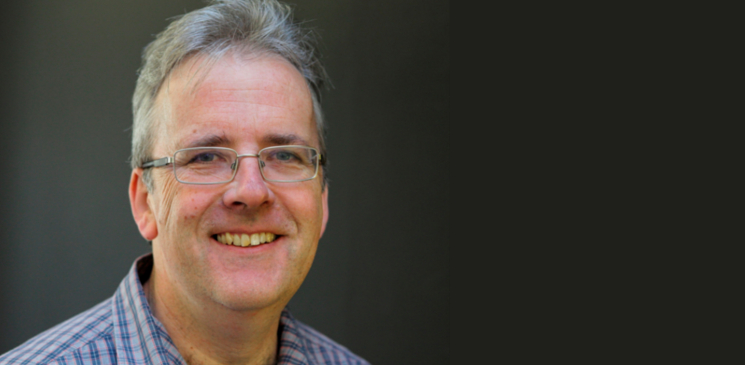
From N8 HPC to N8 CIR – helping researchers gain a competitive edge.
It is a year since the very successful N8 High Performance Computing (N8 HPC) programme was rebooted as a Centre of Excellence programme in Computationally Intensive Research (N8 CIR). Its director is Professor Matt Probert who originally joined the N8HPC group in 2013 as the University of York’s representative. Since 2007, Prof Probert has also chaired the EPSRC funded UKCP consortium of academic researchers who use HPC to do their research in the field of materials modelling, his research area.
He became director after the supercomputer used by N8 HPC, Polaris, was switched off and the group narrowly failed in its bid to win new EPSRC funding for a new facility. A subsequent attempt to fund from internal university sources foundered at the doors of HMRC and its requirement for additional VAT payments around hosted and shared facilities. As Prof Probert says: “It signalled the death knell of the shared procurement venture.”
Frustration and disappointment, though, was the genesis of new focus and led to Prof Probert and his N8 colleagues honing in on a particular aspect of the Polaris/N8HPC success: “We thought we could do something with the software, with computational skills. It was an idea that started about two years ago and we officially launched it in August 2018.”

Since the demise of N8HPC and Polaris, N8CIR has been powering ahead. Key personnel were appointed in November last year and the first steering group agreed its approach a month later, choosing from five themes, Digital Health and Digital Humanities, as areas where they can make the biggest impact. At the start of 2019 each university selected a champion for each theme and ran workshops both in their institutions and local communities to discover what computational barriers exist which are holding back research.
In Manchester in February all the information gathered was assessed to unearth the common themes that will make the biggest impact to turn into an action plan, looking at feasibility, expertise and capacity before delivery.
Prof Probert says: “This is about leveraging the size of the N8 and working collaboratively across the universities to tackle problems that wouldn’t otherwise be tackled. What we are trying to do is find the expertise in our universities that we can draw upon to solve problems big or small and to extract maximum benefit by sharing the work.
“Obviously, in some cases we don’t know what the problems are because the questions have never been asked, but when they are, we are now in a position to facilitate answers. This is about communication, bringing together people with solutions and people with problems and so a direct route to progress is opened up.”
Prof Probert says that the CIR programme is as important as the HPC programme despite the lack of cutting-edge hardware: “There’s a lot of societal benefit in Digital Health and Digital Humanities. At the moment there are a lot of people out there who are struggling to answer the research questions they want to answer and those answers have the potential to make a big difference to people’s lives.
“We have people in our universities who are struggling to push through because they don’t have the necessary skills or training or software and N8CIR can provide that and put them in touch with the people who can help and make it happen.

“One of the things that Digital Humanities want to do, for example, is managing text and extracting information from text based resources or other kinds of archive material that is traditionally locked up in one physical location. If you have access to that location, you have access to the resource, but if you haven’t then you can’t. What therefore can be the key?
“There has been a wave over the last 10 years of digitising some of these resources. But digitisation is only the first step in actually making it available and useful – if it has been digitised in a custom format that only one person has access to, or if the information is not shared, or once you’ve got the information in the right format and its shared, what do you do with it, how do you get the value out of that information?
“So there are lots of different little steps along the way and across humanities there are many different areas of research. If you look at it, what they are doing fundamentally is text mining trying to extract new information in many different areas like archaeology or social sciences. There are lots of different areas where there is a common computational theme, but many different applications. So by putting on bespoke training courses, by helping out with common software tools that can manage these tasks across many different disciplines you can make an impact with a common approach.
“Similarly with Digital Health, we have many big data sets generated from confidential patient records owned by the NHS, so is there a way of achieving appropriate anonymised secure privacy preserving access to this data and how do you do that and how do you get the benefit of that data without violating privacy concerns?
“A big area at the moment is digital mobile health apps which are used to track your fitness. But if you are diabetic, can you use it to track your insulin levels, can you use it to give you an alert that you need to take a shot? Are there things we can do with health monitoring devices instead of having to go to access GP services every month and handing over a paper log of when you had an insulin spike? Instead you could scan your smart phone and transfer all the data seamlessly with no errors, gaps or ambiguity about how things were recorded. It’s much more accurate personalised health care.”

Another area of interest for N8 CIR is using cloud computing to buy cycles rather than hardware. N8 CIR is investigating using its size to leverage good procurement rates of compute cycles from cloud providers to provide a hardware resource.
The Polaris door may have been slammed shut, but computational research is nonetheless thriving across the N8 community. However recently that door has opened again and it’s hoped that N8 CIR is in a strong position to find success in a new tier 2 bid. Prof Probert says: “We would like to host because we would like to be part of the hardware club. If we can get one from external funding then it’s simpler to manage , has joint ownership, and easy access and the VAT barrier is removed.
“But our aim with N8 CIR is for many more N8 researchers to benefit and not just those who use HPC. It’s about helping them gain a competitive edge in their research, by building communities of practice and developing computational skills, software and training as well as facilitating access to HPC resources both locally and nationally. It’s an exciting time and there’s much to be done.”